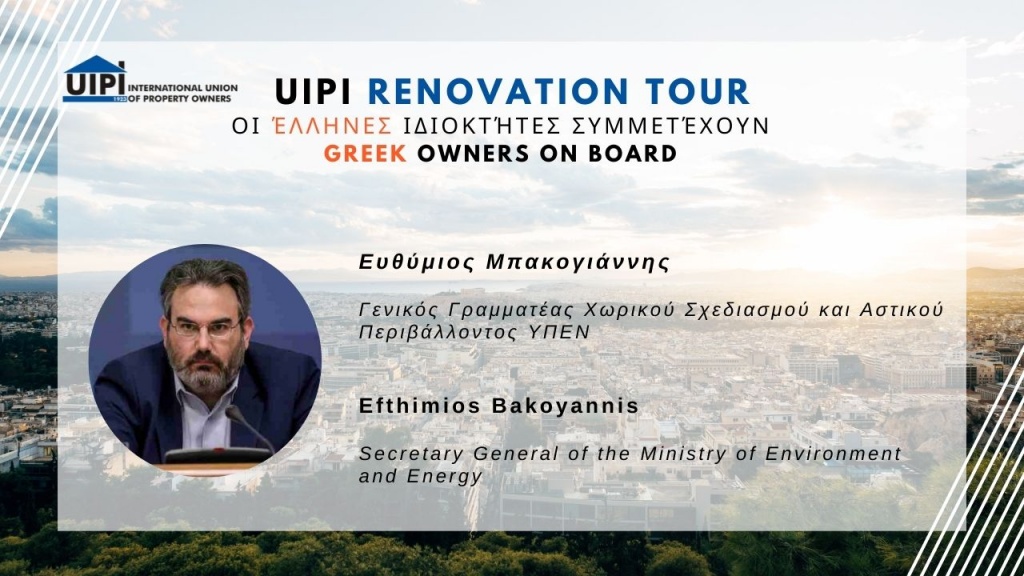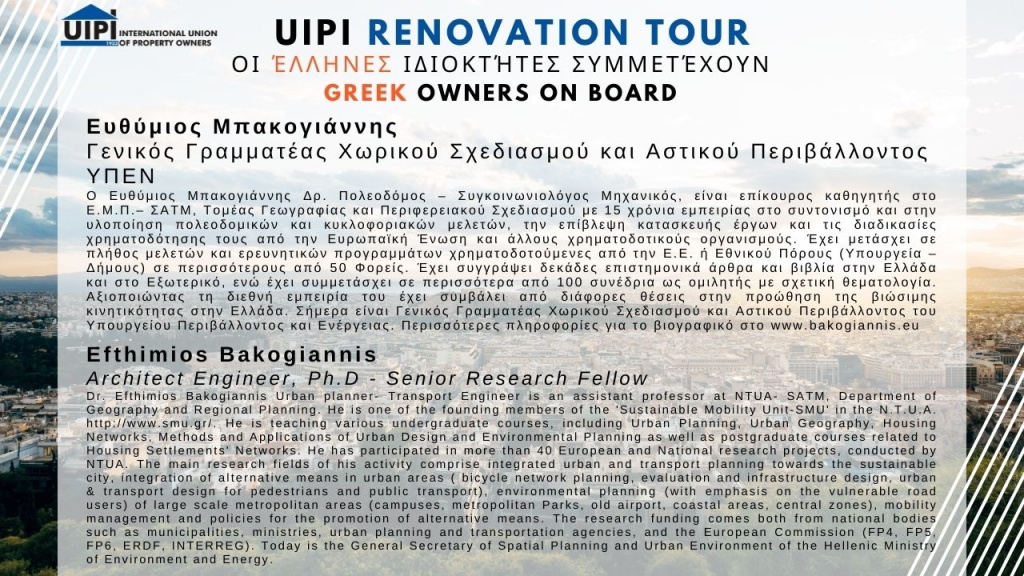In this issue of the “Meet our Member” article series, and in correlation with the German presidency of the Council of the European Union, we take the opportunity to introduce our German member association, Haus & Grund. It is the largest association for private landlords and property owners in Germany, a country where 80.6% of all dwellings and about 2/3 of all rental flats are owned by private individuals, thus making the private owners the backbone of the housing market. The association therefore has an important stake and voice in both local, national and European discussions on property and real estate related matters. For this interview, we speak with Gordon Gross, Public and Media Affairs officer at Haus & Grund.
Gordon, tell us about your association
Haus & Grund represents about 900.000 members across more than 900 local clubs and regional associations. Been in a federal state, we are a bottom-up organisation, our daily business is done by the local associations and their staff. Then the range of services differ substantially, depending on the size of the local association. Our Berlin office is mainly there to coordinate our political actions at federal level.

Which services do you provide to your members?
Our core business is to provide legal advice on tenancy law, taxation, neighbourhood or multi-apartments related issues. In other words, everything related to property. But our local associations often offer many other services, including construction and/or architectural related type of advice, technical advice on energy related building modernisations, etc. They also collaborate with other organisations, e.g. social rental agencies to provide housing for vulnerable households and those at risk of homelessness or, in some cases, with organisations helping victims of domestic violence to find accommodations.
What about your communication activities?
We are in constant contact with the press, radio and television, but we are also very active on social media. Through these channels, we can reach out at citizens, individual owners directly, we can take part in ongoing public debates and parallelly promote new ones. It also allows us to be well connected with other stakeholders and experts to reach these goals.
Can you tell us a bit more about your advocacy actions?
Our advocacy work is articulated around three big questions:
-What is the problem?
-Who/How can solve it?
-How can we help him/her to get it solved?
Our large representativeness makes us an important stakeholder often consulted on real estate related matters. We also have long well-established trusted contacts with decision-makers. In addition, we organise both small and big events and conferences with ministers, members of the Parliament and political advisors. One of the most popular ones in Berlin is a nice get-together that we named “Summer, Sun and Curry”, it is both a way to thank and to engage with the policy officers of members of the Parliament. As they are our most important contacts in the Deutsche Bundestag, we invite them to a one-hour boat trip on the Berlin river Spree shortly before the Parliament’s summer break. While enjoying ‘Currywurst’, famous Berlin fast food and drinks, we can chat about the situation of private landlords in an easy and informal way. It is important to gather information as well as to provide information, in order to be directly involved the decision-making process. However, the most important aspect for us is trust.
What are the most pressing issues for your members at the moment?
At the moment our members are worried about the political discussions on tenancy law. Some proposals are going very far and could curtail the economic freedom of private landlords. At the same time, our members must face a growing number of requirements and obligations to comply with local, national and European climate protection measures. This is a real dilemma as tenants are reluctant to pay for energy efficiency improvement. Private landlords find themselves in conflict between their ambition to make their properties greener, the current obligation and the costs they imply. Another big topic at the moment is the ongoing reform of the recurrent property tax and cadastral value. We advocate for an area-based property tax. The outmost objective for us is to make sure that the reform of property tax does not make housing more expensive.

How do you engage with your members?
It’s all about the structure of Haus & Grund Deutschland, our local clubs and associations are the ones in direct contact with our members and every member has the option of being active in the local and regional boards. Thanks to our own extranet – for convenience sake, let’s call it the “H&G Facebook” – we learn about the local experiences and needs that occur and take place all over Germany.
If you were to ask something from the European Commission and/or from national politics, what would it be?
The European Union was established to build a reliable common framework and to set Europe’s big political goals. However, it should be up to Member States and to a certain extend individual property owner’s how to reach these goals.
On the national level, we call on the members of the Federal and States Parliaments as well as on the Federal Government to take the situation of private landlords into account when it comes to regulation of real estate and housing market. It is important to balance the burden put on private landlords if we want to have a well-functioning housing market. The same thing is to be advocated at EU level.
What are you doing to join the energy efficiency goals established in the Renovation Wave Strategy and the European Green Deal?
In the residential building sector, the energy turnarounds are well advanced, but further measures need targeted incentives. Voluntariness, economic efficiency and openness to technology must be based on the principles of energy policy for the building sector. In Germany, 25.5% of final energy is consumed in residential buildings, 17.1% is used to heat residential buildings and 14.1% are obtained from fossil fuels. We have committed to reduce greenhouse gas emissions by 55% by 2030, and it is important to remark that most CO2 emissions have so far been saved in buildings.
What do you expect from the current EU legislature?
We wish a fair balance of interests: between tenants and landlords, between climate action plans and the legitimate desire for an affordable dwelling for all citizens. The role of our organisation is to point out at these potential conflicting aims and to work to propose fair and sustainable solutions.



